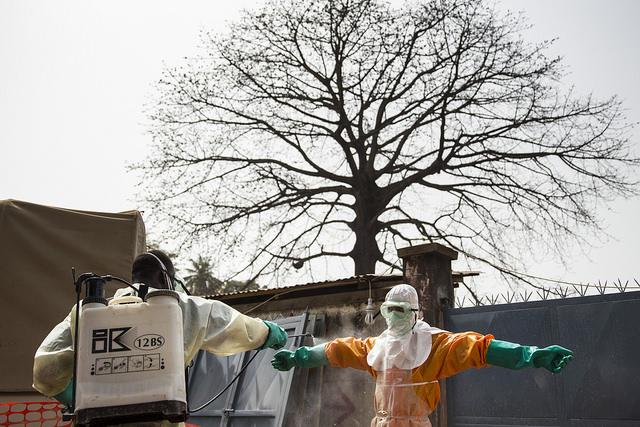The Democratic Republic of the Congo (DRC), in updates released Oct 5 through yesterday, detailed 12 new cases of Ebola in North Kivu province. All but 2 of the cases were reported in Beni, the epicenter of the current outbreak.
There are now a total of 177 cases (142 confirmed and 35 probable), including 113 deaths. Eleven suspected cases are under investigation.
Second illness wave linked to challenging Beni cluster
In an Oct 5 update, DRC officials said the new cases represent "a second wave of confirmed cases among refractory contacts" among residents of the Ndindi neighborhood of Beni, who have been resisting outbreak response efforts since August. Besides the 10 cases in Beni, 2 cases have also been reported in Butembo.
Late last week, the DRC's minister of health, Oly Ilunga Kalenga, MD, visited Beni to announce a new strategy.
"The city of Beni has been divided into 18 operational zones that correspond to the 18 health areas of the city. From now on, each health area will have a specific response team to carry out activities corresponding to the different pillars of the response," the DRC said, noting that more healthcare personnel have been deployed to the region.
Yesterday, the DRC revealed that in-depth investigations on the last five confirmed cases in Beni showed three probable cases in deceased persons who were buried before being tested for Ebola.
On Oct 6, the DRC updated its information about exploratory Ebola treatments currently be used in the outbreak. A total of 56 patients have been treated with mAb 114, remdesivir, ZMapp or Regeneron monoclonal antibodies. Of these 56 patients, 27 are cured and have been discharged, 14 have died, and 15 are still hospitalized.
Since Aug 8, 14,869 people have been vaccinated, including 5,072 in Beni, 4,269 in Mabalako, 1,663 in Mandima, 1,352 in Katwa, 1,100 in Butembo, 427 in Bunia, 355 in Tchomia, 270 in Masereka, 240 to Komanda, and 121 to Oicha.
Violence, resistance in North Kivu
In related news, The Lancet published results from a survey given to 582 residents of the current outbreak areas in August in the DRC, which showed that heavy violence in North Kivu is taking a toll on Ebola response efforts. Participants in the survey live in Mangina, Beni, and Butembo.
Compared with people in Guinea who answered similar questions during the 2014-2016 Ebola outbreak, survey responders in North Kivu were more likely to resist response efforts and said heavy violence in the region was an impediment to getting health care.
"The survey results revealed some worrying attitudes: unwillingness to send a family member suspected of being infected with Ebola virus to an Ebola treatment unit (ETU; 101 [17%] of 580 participants in our survey vs <516 [<9%] of 5,733 participants in Guinea) and intention to hide family member from health authorities (101 [17%] of 581 participants in our survey vs 221 [4%] of 5,520 participants in Guinea)," the authors said.
See also:
Oct 5 DRC update
Oct 6 DRC update
Oct 7 DRC update
Oct 5 Lancet study



















